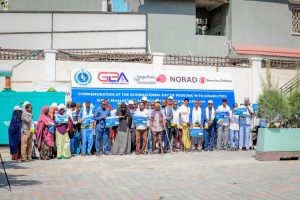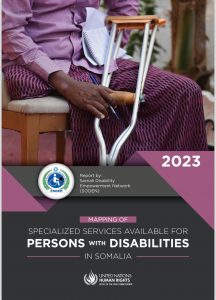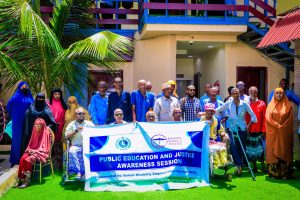ABSTRACT
This study was carried out to assess disabled learners’ access to primary education in Hamarjajab district, Mogadishu Somalia. Specifically, the study sought to; determine the risks that disabled learners face while traveling to school in Mogadishu; establish how the school environment meet the needs of disabled learners in primary schools in Mogadishu; determine the challenges disabled learners face while studying in primary schools in Mogadishu.
This study adopted a mixed method design. It employed a cross-section survey of 37 learners and 30 parents as well as 37 key informants who included teachers, administrators, district education officers and disable people organizations. The findings show that disabled learners are prone to accidents in form of being knocked down by cars while moving to schools (64% of the respondents combined): learners also face an unfriendly climate which features as a major barrier (56% of the respondent): Disabled learners face abuses from members of the public in form discrimination (47% of the respondent): Secondly, schools have tried to enhance access of mobility devices in their environment, but more still needs to be done. In particular, ramps have not been given priority in the design of learning facilities. Teaching methods and the human resource (staff) to specifically address the needs of disabled learners are to a large extent not satisfactory. The results further show that normal learning methods are utilized to a large extent (47% of the respondent): The problem is compounded by the fact large numbers of staff are normal teachers. (58% of the respondent): The study found out that most disabled learners trek to schools cover an average of 1.5km to access the closest school (56% of the respondent).
In conclusion, disabled learners face risks, un-conducive school environments and numerous challenges which hamper their access to education. The study recommends that government and development partners should mobilize resources aimed at improving roads, the building of more inclusive schools, equipping of learning centers with facilities and human resources to enhance access to education for the disabled learners.
——————————————
NB: This is academic research for more information and whole the dissertation please contact info@somalidisability.org





